
Just on the Horizon: Nine Utopian Books to Deprogram Our Brains
Kristen R. Ghodsee Recommends Thomas More, Aldus Huxley, and More
Too many of us in post-industrialized societies have been raised on a steady diet of dystopian tales. These convince us that social dreaming is dangerous, always and inevitably leading down the slippery slope to some bleak totalitarian nightmare. Our fear of an apocalyptic future bludgeons us into accepting an imperfect and unjust present. Here are nine utopian books to help deprogram your brain.
*
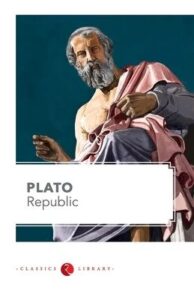
Republic, Plato
This ur-utopian text is a must read for everyone interested in the value of social dreaming. Although most people read this for Plato’s famous “allegory of the cave,” the most fascinating sections are in Book V where the famous ancient Greek philosopher describes the ideal lifestyles for the elite Guardians of his imagined city of Kallipolis. Plato abolishes the family, advocates communism, and proposes big collective mating festivals after which all children will be raised in common.
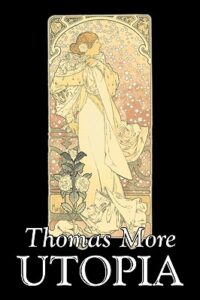
Utopia, Thomas More
Written in Latin in 1516 in the wake of Vespucci’s and Columbus’s first journeys to the Americas, Utopia is the book that coined the word. Sir Thomas More, who was Henry VIII’s Lord Chancellor, conjures a perfect island society to contrast with the England of his day. A homonym for the Greek words “utopia” and “eutopia,” the name can either mean refer to a “no place” or a “good place.” More describes a happy and thriving populace where all property is owned in common, where no one is required to work more than six hours a day, and where everyone has access to free and lifelong education.
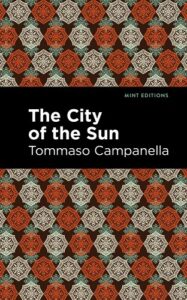
City of the Sun, Tommaso Campanella
In 1602, the Dominican philosopher Tommaso Campanella, a staunch defender of Galileo Galilei, wrote City of the Sun, another traveler’s report of having visited a utopian land. Campanella describes a city built within a series of concentric walls painted with an illustrated encyclopedia of human knowledge. Children learned about their world by living, playing, and being led around the walls of their city. At a time when most Europeans were illiterate, Campanella imagined an ideal society where knowledge was freely accessible to all, not so different from the present-day project of the Wikimedia Foundation.

Flowers in the Mirror (鏡花緣), Li Ruzhen
In this 1827 fantasy novel, the Chinese author Li Ruzhen proposed the idea of full equality for women, something unthinkable in his society at the time. His protagonist journeys to imagined lands like “The Country of Women” and “The County of Sexless People.” Through this luscious tale, Li Ruzhen questioned the strict Confucian hierarchies of his day by conjuring a world which upended the idea that gender roles are natural and fixed.
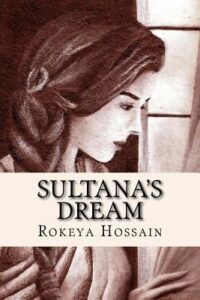
Sultana’s Dream, Rokeya Sakhawat Hossain
More of a short story than a book, Sultana’s Dream was originally published in English in The Indian Ladies’ Magazine in 1905. The text opens with the enticing line: “One evening I was lounging in an easy chair in my bedroom and thinking lazily of the condition of Indian womanhood.” Sultana dreams of an alternative world called “Ladyland” where women run everything and men are sequestered away from society, an exact inversion of the Indian Muslim society of Hossain’s time. In Ladyland, crime ceases to exist because men are no longer on the streets to commit it.

Red Star (Красная звезда), Alexander Bogdanov
This novella is often called “the first Bolshevik Utopia.” Written in 1908, Bogdanov related the tale of the journey of a Russian revolutionary who visits an anarchist communal society on Mars. Unlike the centralized authority that came to define the Soviet Union after 1917, Bogdanov’s utopia is an anti-authoritarian society where all labor is voluntary, where gender roles have been largely erased, and where the young are raised in large, multiage groups in a children’s colony. The Martians’ main enemy is the harsh environment of their planet and its finite resources, making this a wonderfully prescient book about the challenges of climate change.
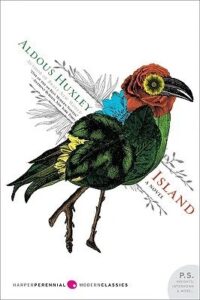
Island, Aldous Huxley
Huxley’s last novel conjures is the polar opposite of his more famous work: Brave New World. In this relentlessly optimistic book, everyone knows how to administer “psychological first aid” to strangers in distress. The people of the island nation of Pala raise their children within a wider network of “Mutual Adoption Clubs” (MACs). When the stresses of parenting become overwhelming, or teenagers fall out with their parents, children can temporarily move out and live with other adults in their MAC, a large group of other families with whom they and their parents have established a long and trusting relationship.
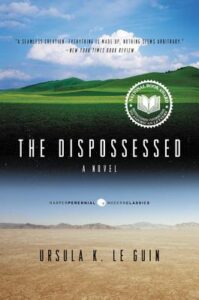
The Dispossessed: An Ambiguous Utopia, Ursula Le Guin
One of my absolute favorite science fiction novels of all time, Ursula Le Guin follows in Bogdanov’s footsteps and imagines a society on the planet of Annares. In the midst of the Cold War, Le Guin found inspiration in the works of the Russian anarchist geographer Peter Kropotkin. She used the fictional journey of a brilliant physicist, Shevek, back to the mother planet of Urras to reflect on the many deficiencies of both Western capitalism and Eastern Bloc communism. The book is an extended thought experiment in how Kropotkin’s ideas of mutual aid and syndicalism could be realized in practice.
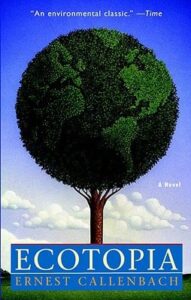
Ecotopia: The Notebooks and Reports of William Weston, Ernest Callenbach
This 1975 cult novel features one of the first environmental utopias. Callenbach imagined a breakaway country formed from the previous U.S. states of Washington, Oregon, and Northern California. This new country prioritized ecological sustainability and the full equality of women and conjured things like public recycling bins and communal bicycles, wild propositions when Callenbach wrote the book. He viewed his novel as a possible blueprint for the future, inspiring many green activists. “It is so hard to imagine anything fundamentally different from what we have now,” Callenbach told the New York Times in 2008. “But without these alternate visions, we get stuck on dead center.”
______________________________
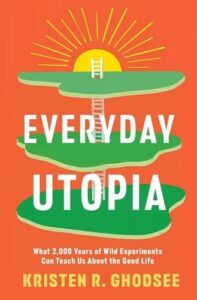
Everyday Utopia: What 2,000 Years of Wild Experiments Can Teach Us about the Good Life by Kristen R. Ghodsee is available from Simon & Schuster.
Kristen R. Ghodsee
Kristen R. Ghodsee is a professor and chair of Russian and East European studies at the University of Pennsylvania and the critically acclaimed author of Everyday Utopia: What 2,000 Years of Wild Experiments Can Teach Us About the Good Life and Why Women Have Better Sex Under Socialism: And Other Arguments for Economic Independence, which has been translated into fifteen languages. Her writing has been published in The New York Times, and The Washington Post, among other outlets, and she’s appeared on PBS NewsHour and France 24 as well as on dozens of podcasts, including NPR’s Throughline, Vox’s The Gray Area, and The Ezra Klein Show. She lives outside Philadelphia.



















